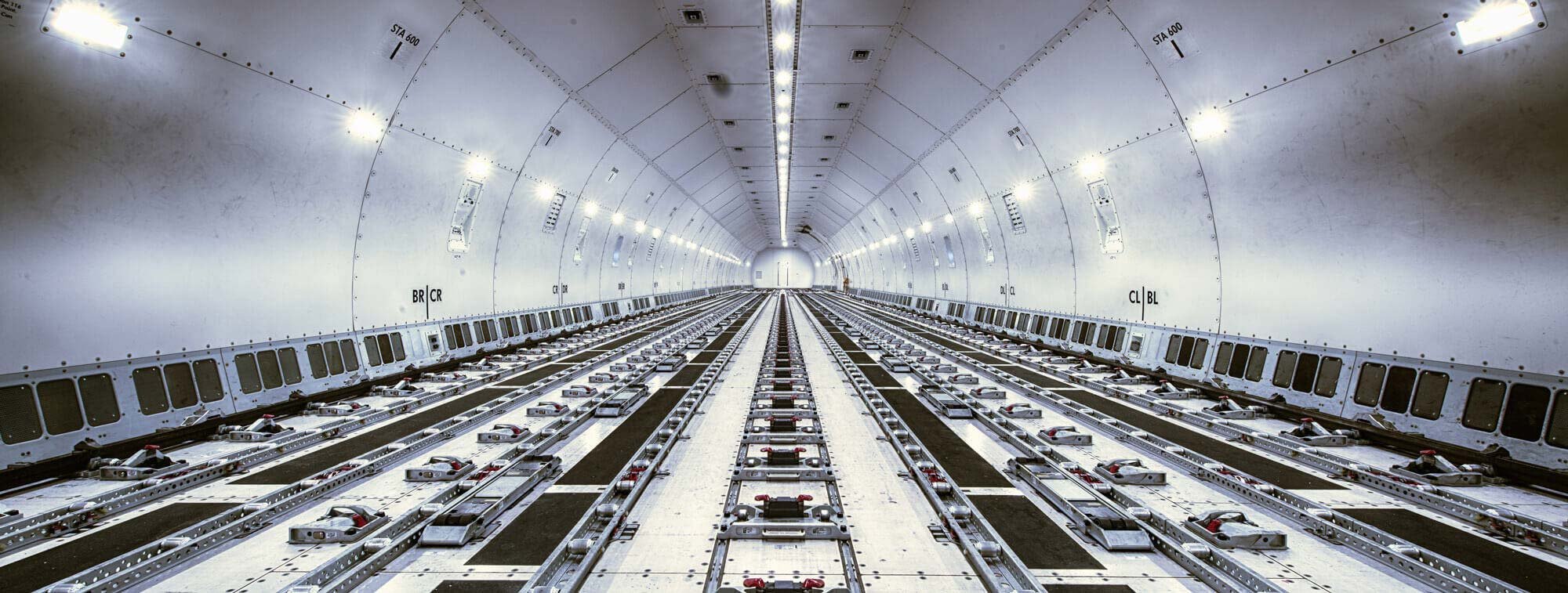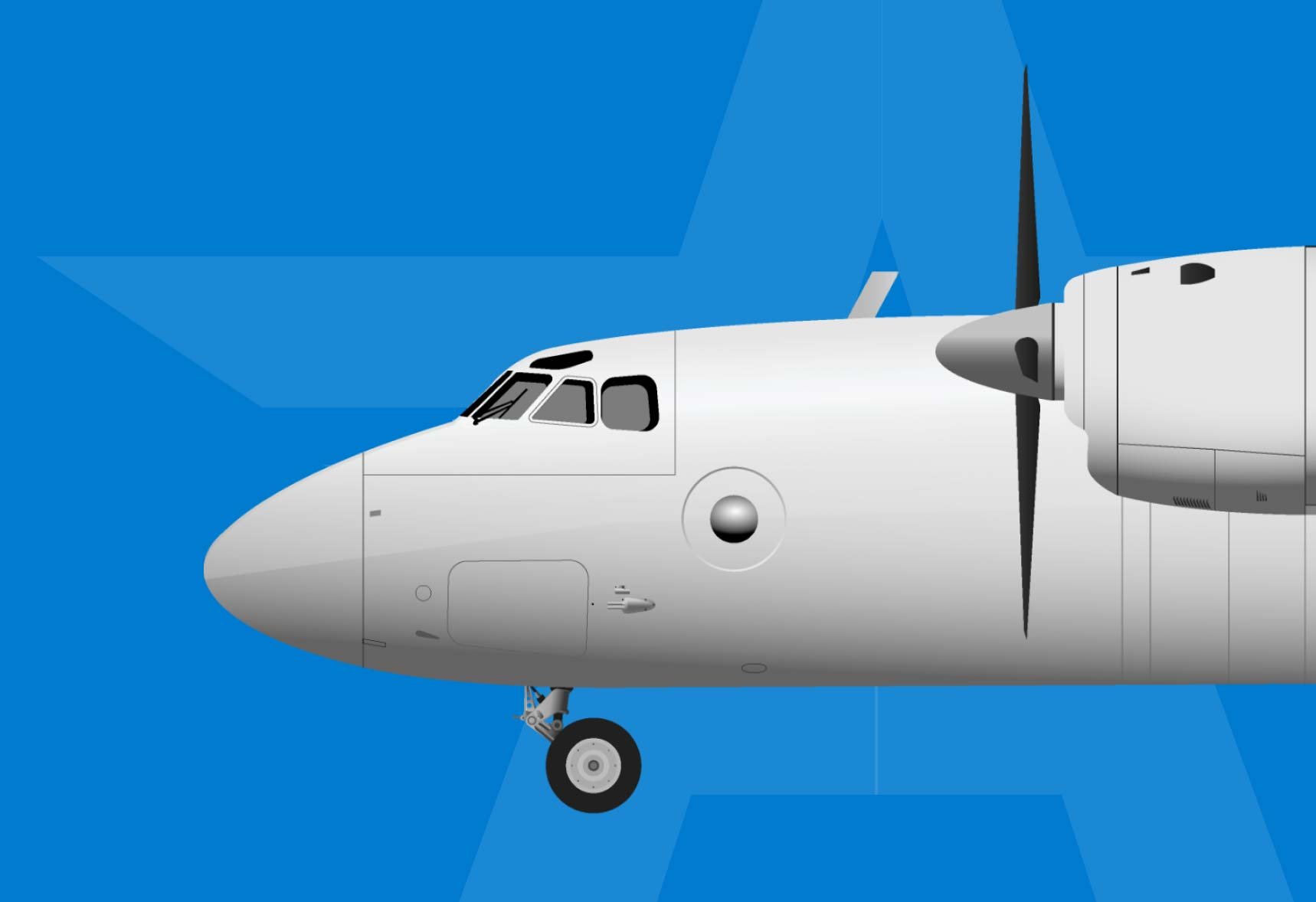May 16, 2025 | BY Dan Boaz
Air Cargo Charter
Among the various modes of cargo transportation, air freight stands out for its unmatched speed and reliability, especially when seconds matter. Within this domain, the U.S. air cargo charter industry plays a critical role, offering rapid-response solutions that conventional shipping methods simply can't match.
Share this article
Air cargo charters are designed for flexibility and urgency, capable of mobilizing aircraft on short notice to meet tight deadlines or navigate around disruptions like natural disasters, supply chain bottlenecks, or geopolitical challenges.
These services are indispensable for industries such as aerospace, automotive, pharmaceuticals, and tech—sectors where delays can result in significant financial losses or operational shutdowns. By offering tailored solutions that prioritize speed, security, and precision, charter operators enable businesses to maintain continuity and competitive advantage in volatile markets. Moreover, the air cargo charter industry contributes to national and global resilience. Whether delivering emergency medical supplies during a crisis or transporting critical equipment to remote areas, these flights often act as logistical lifelines. Their adaptability and readiness make them vital assets not only for commercial needs but also for humanitarian missions, military operations, and disaster relief. In an increasingly interconnected world, the agility of air cargo charters continues to make them an indispensable component of the broader logistics ecosystem.
Charter flights are essentially “aircraft on demand.” Instead of fitting freight into the pre-set schedules of commercial carriers, a business can charter a plane dedicated entirely to its cargo’s needs. This ability to mobilize a cargo aircraft at a moment’s notice has made air charter service a crucial tool for time-sensitive shipments. As companies put more emphasis on agility and resilience, charters have shifted from a last-resort option to a core part of logistics planning for many organizations.
WHAT IS AIR CHARTER?
The U.S. air cargo charter industry has evolved from a niche service into a strategic pillar of logistics. Its value is evident across industries – from automotive factories averting shutdowns, to pharma companies saving lives, to retailers meeting holiday rushes. Air charters thrive on the principle that time is critical. When every minute counts, having the option to dispatch a dedicated aircraft can make or break a supply chain outcome.
Looking ahead, air cargo charters are poised to remain a growth sector. Continued investments in technology and sustainable practices will likely make charters more accessible and more eco-friendly. As more companies experience the benefits of on-demand air lift, the perception of charters is shifting – from expensive last resort to prudent strategic resource.
TALK TO AN EXPEDITOR NOW
Get a Free Air Charter Quote

Air Charters as a Pillar of Supply Chain Resilience
Perhaps the most strategic aspect of air cargo charters is the role they play in supply chain resilience. In an era of frequent disruptions – whether caused by natural disasters, global pandemics, or geopolitical events – having a backup plan is essential in logistics. Air charters have emerged as a go-to contingency that keeps supply chains running when the unexpected hits. They provide a crucial backup to keep goods moving when normal transport channels fail.
This agility is not only useful in emergencies; it can also help companies seize opportunities. If a sudden market demand spike occurs or a competitor faces a stockout, a nimble firm can charter a plane to rush products in and capitalize on the moment. Recognizing this, many businesses now include air charters in their contingency plans. They maintain relationships with charter brokers and carriers even if they don’t use them regularly, treating charters as an insurance policy for the supply chain. The result is greater confidence that, no matter what disruption hits, there’s a fast-track option to keep goods moving.
Air Charter Industries
Air cargo charter services support a wide array of industries across the U.S. economy. Whenever conventional shipping or scheduled air freight can’t meet a critical need, companies in these sectors turn to charters as a solution.
The bottom line is that air cargo charters provide a critical safety net for supply chains. They certainly don’t replace standard freight channels, but they reinforce the network.

Automotive Manufacturing
Auto makers use charters to ship urgent parts and avoid costly production line stoppages. In the automotive world, a single missing component can idle an assembly line – and every minute of downtime (often costing tens of thousands of dollars) adds up quickly. Chartering a cargo airplane to deliver engines, electronics, or tooling overnight can save auto manufacturers millions by keeping just-in-time assembly on track.

Pharmaceuticals & Healthcare
Hospitals, pharma firms, and healthcare distributors rely on charters for time-critical and sensitive shipments. This ranges from flying in organ transplants or emergency medical equipment to delivering temperature-controlled vaccines and medicines. During the COVID-19 pandemic, for example, charter flights were used extensively to rush personal protective equipment (PPE) and later vaccines to U.S. communities.

Oil, Gas & Energy
Energy companies often operate in remote areas (like offshore rigs or isolated oil fields) where standard logistics can’t reach quickly. Charter planes carry heavy machinery, replacement parts, or emergency supplies directly to these sites. If a drilling operation in Alaska or the Gulf of Mexico has equipment failure, a dedicated charter plane can fly in the needed part and prevent a multi-million-dollar loss from prolonged downtime.

Air Charter Market Insights and Trends
Air Charter Market Growth
Global cargo charter services were roughly a $10 billion market in 2024, and they are growing around 5% per year. North America (led by the U.S.) accounts for about 40% of this market, driven by booming e-commerce, just-in-time production needs, and greater demand for agile logistics.
Post-Pandemic Demand
During the pandemic, charter demand and rates spiked to record highs (some transoceanic flights cost over $2 million each) due to scarce capacity and urgent needs. While those extreme conditions have eased, charter usage remains elevated above pre-2020 levels, with 2023 booking volumes still growing year-over-year.

Air Charter Industry Response
Logistics providers and expedited freight companies adapted by expanding charter capacity. Major forwarders established dedicated charter networks or leased additional freighters to ensure space for clients, effectively acting as cargo airlines. U.S. cargo carriers also grew their fleets and invested in newer freighters to meet ad-hoc demand. Likewise, leading aircraft companies ramped up production of freighter models and conversions, reflecting confidence in long-term air cargo demand.
Competitive Edge
Shippers now view on-demand airlift as a competitive advantage, not just a last resort. A decade ago, charters were rarely in contingency plans; today many companies budget for emergency charters and incorporate them into risk management. This shift underscores a broader trend toward more resilient supply chains.
TALK TO AN EXPEDITOR NOW
Get an Expedited Freight Quote Now
Aircraft Used in Air Cargo Charter Services
In the world of air freight logistics, aircraft charter services play a crucial role in expedited freight delivery, heavy lift operations, and transporting time-critical cargo. Air cargo charters are a specialized subset of air freight, providing on-demand flights when shipments simply cannot wait for scheduled services. This means if a supply chain faces an urgent need or an unexpected disruption, a dedicated air cargo charter can move freight on a critical timeline to avoid delays. In fact, cargo charters are often the best solution for extremely urgent deliveries (same-day or next-day), heavy and oversized freight, or valuable shipments that require special handling. By securing an aircraft charter, businesses gain exclusive use of a cargo plane, allowing direct routes and flexible scheduling to meet even the tightest deadlines.

Boeing 747-400F
The Boeing 747-400F is a flagship cargo aircraft in the air charter industry, known for its immense capacity and global range. This wide-body freighter can carry a maximum payload in excess of 100 metric tons – in fact, about 128.5 tonnes at full load – making it ideal for heavy lift air freight operations. With its powerful engines and long-range fuel tanks, a 747-400F can fly intercontinental routes while fully loaded, enabling expedited freight delivery between major hubs without refueling stops. In practical terms, this means a chartered 747 can move large shipments (for example, thousands of packages or several industrial machines) across the world in a single dedicated flight. Such capability is invaluable for time-critical cargo that needs to reach overseas destinations quickly and reliably.
Learn MoreAirbus A300-600F
The Airbus A300-600F is a twin-engine wide-body freighter designed for medium-haul routes, and it remains a popular choice for air cargo charter services worldwide. This aircraft offers a payload capacity of roughly 47,000 kg (47 tonnes), leveraging its spacious fuselage to carry significant freight volume. In its freighter variant, the A300-600 features a high versatility design: it can carry substantial tonnage on its main deck while also using its generous lower-deck holds for additional containers and pallets. The aircraft’s range of about 4,000 km (approximately 2,500 miles) fully loaded means it can link major regional hubs or even stretch to transcontinental distances with some payload adjustment. This balance of payload and range makes the A300-600F an ideal charter aircraft for routes that are beyond the reach of smaller planes but don’t require the extreme range of a 747.
Learn MoreAntonov An-26
The Antonov An-26 is a rugged twin-engine turboprop cargo aircraft well-suited to short and medium-range charter missions. While much smaller than jumbo jets, it can lift an impressive payload of around 5,500–6,000 kg (about 6 tons), which is considerable for its size. The An-26 was engineered for versatility and durability – it can take off from short or even unpaved runways and operate in environments that would challenge larger aircraft. With a typical range of up to ~1,100 km when carrying a full load, this aircraft is ideal for regional hops, connecting out-of-the-way sites or neighboring countries with direct flights. Its cruise speed of roughly 440 km/h (270 mph) is modest compared to jet freighters, but it is sufficient for urgent deliveries over shorter distances. Crucially, the An-26’s ability to access remote areas and smaller airports allows air charter services to reach places that standard commercial freighters can’t, making it invaluable for certain time-critical cargo deliveries.
Learn More
McDonnell Douglas DC-10F
The McDonnell Douglas DC-10F is a wide-body cargo aircraft (the freighter variant of the DC-10 trijet) that was once a mainstay of long-range freight transport. It boasts a payload capacity on the order of 65,000 kg (65 tonnes), placing it in the heavy freighter category. Essentially an enlarged successor to the older DC-8, the DC-10F offers both a higher payload and longer range than its predecessors. It was designed for medium to long-haul operations, capable of flying approximately 6,000–7,000 km with a full load of cargo. This range allows a DC-10F charter to connect far-flung hubs in one leap – for example, carrying freight across oceans or between continents without intermediate stops. In the era before modern twin-engine widebodies took over, the DC-10F was a go-to aircraft for dedicated air cargo routes, and it still finds use today for specialized charters that require its combination of capacity and distance.
Learn MoreThe Value Proposition of Air Cargo Charter Services
Why would a company pay a premium to charter an aircraft? The answer lies in the unique value proposition that charter services offer. Air cargo charters provide advantages that traditional air freight delivery services or scheduled flights often cannot match:
Speed and Urgency
Flexibility in Scheduling
Reach and Access
Capacity and Customization
Frequently Asked Questions
What is an air cargo charter service, and how is it different from standard air freight?
When should a business consider using an air charter for freight instead of regular shipping?
What are the benefits of using an air cargo charter for shipping goods?
How does one book an air cargo charter flight for a shipment?
What details are required to get an aircraft charter quote for cargo?
How quickly can an emergency air cargo charter be arranged?
Are air cargo charter services available 24/7 for urgent shipments?
Can I charter a cargo aircraft for domestic shipments within the United States?
When would I need an air charter instead of standard air cargo?
How do I choose the right cargo aircraft for my charter needs?
Related Blog Posts

Tesla, Navista Compete To Unveil The Leading Electric Trucks
Tesla has long billed itself as the leader in advanced and sustainable vehicles. But when it comes to electric trucks, the company is at risk of being upstaged.

Obstacles & Opportunities: 5 Greatest Challenges In Expedited Trucking
Growing pains are a reality in every industry, and expedited freight is no exception. As the market evolves and public policy changes, trucking companies of all stripes must adapt or risk going out of business. The American Transport Research Institute (ATRI) recently published a report on the challenges that carriers must deal with going forward.

Expedited Freight Quote
A freight quote is an estimate provided by a carrier or third-party logistics provider that outlines the cost of transporting goods from one location to another. It’s based on a variety of factors, including the weight and dimensions of the shipment, the distance between pickup and delivery locations, and the chosen method of transportation.

How to Find A Freight Broker Near Me
Freight brokerage—also called logistics brokerage or transportation brokerage—is the business of connecting companies that need to ship goods with the carriers that can transport them. A freight broker acts as an intermediary between shippers (the cargo owners) and freight service providers (usually trucking companies).

Dedicated Freight
Dedicated freight is a trucking solution in which a carrier allocates a fixed fleet of trucks and drivers exclusively to a single shipper under a long-term agreement. In this model the carrier “dedicates” equipment and personnel to the customer’s lanes or regions on a multi-year contract.

Logistics Trucking Company
Ensuring these goods reach their destinations efficiently is a complex task – one that logistics trucking companies specialize in. These firms help businesses coordinate shipments, manage transportation, and streamline the flow of products. This article explains what a logistics trucking company is, the advantages of hiring one, common challenges in the industry, how to choose the right provider, and emerging trends shaping the future of...
THE RISE OF EXPEDITED FREIGHT JOBS
In today's fast-paced logistics world, getting things delivered on time is very important for both businesses and consumers. With the increasing demand for rapid delivery services, expedited freight has become an essential component of the supply chain.
Industries We Serve
Modern day hot shot trucking provides the speed and exclusivity you need to meet the most demanding and time-sensitive shipping requirements. We use every resource, avenue, and channel available to ship your freight by ground or air. Designed specifically to address supply and distribution problems that arise without warning, hotshot trucking tactics involve coordinating a network of carriers in a variety of locations. By calling on the vehicles closest to your supply or distribution points, hotshot brokers can fill any sudden gaps in your supply network almost as soon as they happen. This minimizes the disruption to your business and allows you to quickly return to ordinary operations, weathering the storm without skipping a beat.
Automotive
The automotive supply chain already has significant challenges. Don’t let malfunctioning equipment stop the production line. Step on the gas with HotShotTrucking.com’s suite of services that will get you back in the fast lane. With HotShotTrucking.com, companies are devising shipping strategies to swiftly deliver critical parts and equipment — whether it's ground expedite service with sprinter vans, box trucks and 53-foot tractor trailers or air freight and air cargo.
Aviation & Aerospace
Every moment a commercial airliner sits on the ground, it costs an airline money. Expedited freight services by HotShotTrucking.com can get you back in the air with prompt delivery of parts and equipment throughout North America. We are equipped with the expertise to navigate the complexities of shipping jet engines and other types of loads, and our network of hot shot drivers has extensive experience transporting aviation assets.
Construction
One shipping delay can snowball and cause delays throughout your entire project. You need an experienced 3PL provider who understands the construction industry and has the logistical reach to deliver your freight on time, anywhere. That 3PL partner is HotShotTrucking.com. Whether in the air or on the ground via truck and trailer, we can connect companies to expedited freight services for the prompt delivery of parts and equipment throughout North America.
Mining & Metals
From cranes to chemicals to excavators to conveyor belts, HotShotTrucking.com has the experience and industry know-how required for shipping sensitive, oversized, and hazardous equipment. Third-party hot shot trucking and logistics providers such as HotShotTrucking.com specialize in devising and implementing innovative shipping solutions, ensuring mines can swiftly return to operation. We’ll pick up your shipment, deliver it to the airport and receive it at the other end – providing hand-carried service as necessary or required.
Manufacturing
Every moment a manufacturing facility or factory sits idle costs a company money because of the high costs involved. With many manufacturers building to only just-in-time production rates, any disruption threatens parts and vehicle inventories. This is where the speed and expertise of freight services from HotShotTrucking.com can make a difference throughout the entire manufacturing supply chain. We do all the logistical legwork to find the optimal solution for your job, whether it's an exclusive air charter or expedited ground shipping.
Telecommunications
From servers to cell towers, information, voice, and data must flow to keep businesses, production, and the public online and connected. When equipment goes dark, depend on HotShotTrucking.com to get your systems flashing green again. This is where the speed and experience of trucking and freight services from HotShotTrucking.com can help. Our hot shot truck network excels at the prompt delivery of parts and equipment throughout North America.
Oil & Gas
The oil and gas industry faces challenging conditions in offshore and onshore oil rigs, often in remote locations with limited infrastructure. Don’t let oil pumps or pipelines sit idle waiting for equipment. By having the right plans, parts, people, and logistics partner like HotShotTrucking.com, you can effectively mitigate plant or pump downtime, unscheduled disruptions, and equipment failures.
Cost of Urgent Shipping
Which of our specialized shipping services best fits your needs?
Blog and Resource Center
How AirFreight.com Solved a PGA Tour Shipping Emergency
Learn how AirFreight.com located a lost shipment and helped save the PGA Golf Tour.
How AirFreight.com Saved The Farm By Solving A Major Shipping Delay
Learn how we saved a Montana-based artisanal farm thousands of dollars by expediting a shipment of perishable goods.
Expedited Shipping Vendor Comparison
We’ve done the research for you. This vendor comparison sheet breaks down how AirFreight.com stacks up against the competition.

talk to an expeditor now
Get a Quote in Minutes for Your Time Critical Freight Needs
GET A QUOTE

